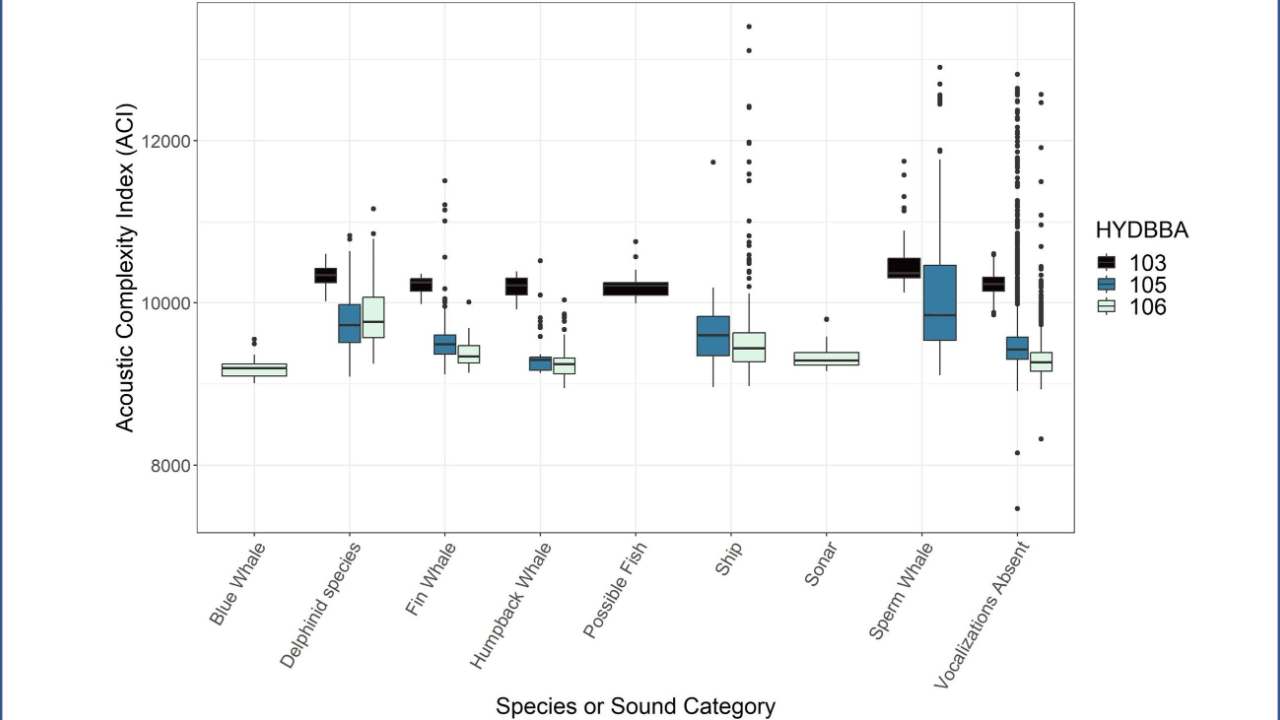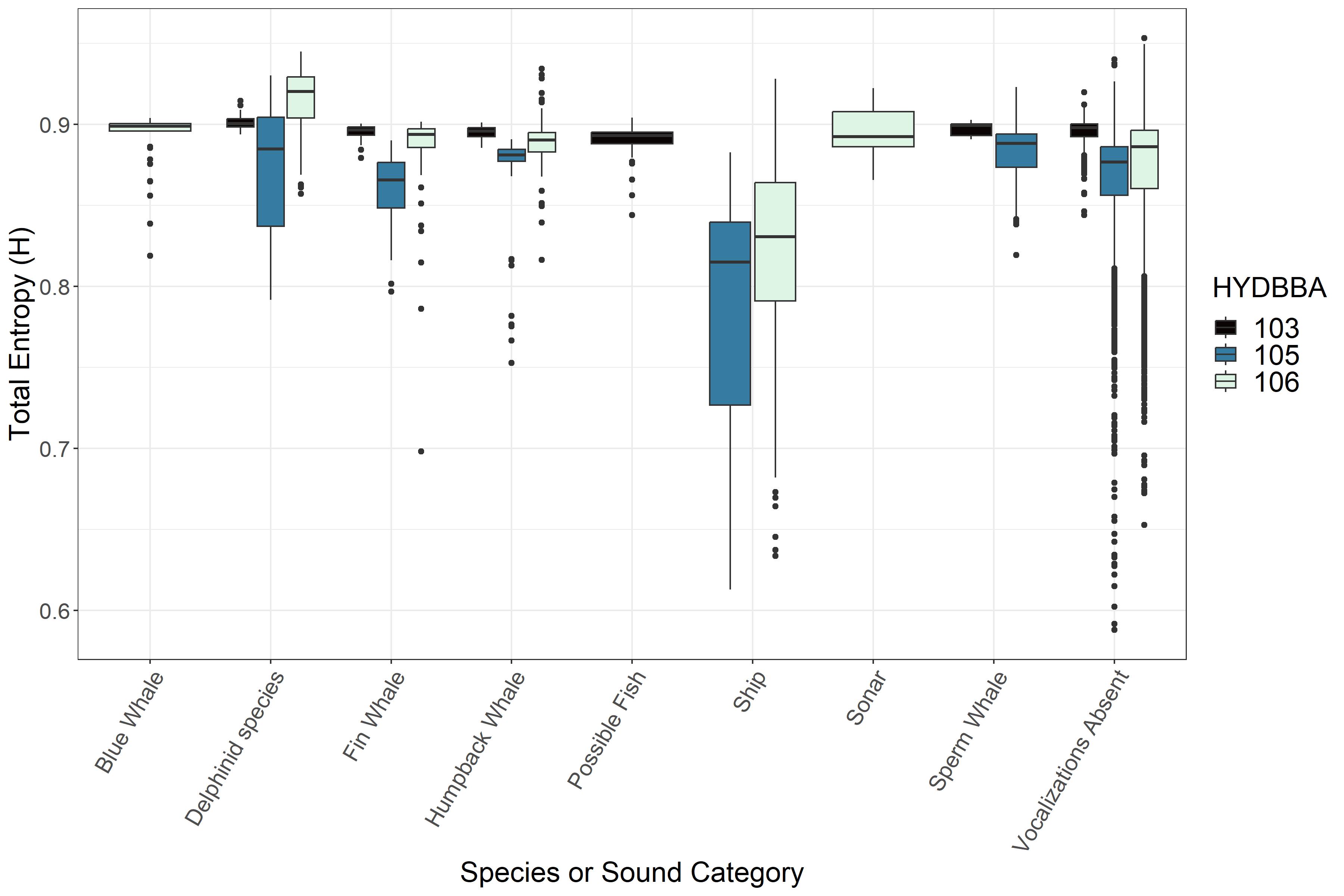OSA Publication on the Response of Acoustic Biodiversity Indices to Select Underwater Sounds

Using the approach outlined in our PAM: Large Dataset Analysis course in concert with R-based calculations of seven acoustic-based biodiversity indices, we are proud to share details of our new publication in Frontiers in Marine Science, Marine Megafauna entitled “Acoustic indices respond to specific marine mammal vocalizations and sources of anthropogenic noise.” This work was performed using passive acoustic data collected from the Ocean Observatories Initiative's cabled arrays in the Pacific Northwest and explores the relationship between marine mammal sounds as well as anthropogenic noise and acoustic indices.
Key findings from a generalized linear mixed-effect model analysis indicated multiple species and sound types contribute significantly to the variation of several index measurements. For instance, measurements of the Acoustic Complexity Index (ACI) increased in response to echolocation clicks from sperm whales (Physeter macrocephalus) and burst pulses originating from unidentified delphinid species, as show in the image above. Interestingly, correlations coefficient and confidence interval values between ACI measurements and call characteristics from sperm whales indicate a moderate to strong relationship, which was not found in correlations with delphinid calls.
Additionally, noise generated by passing ships consistently resulted in decreased values for the Normalized Difference Soundscape Index (NDSI) and Total Entropy (H; Figure below) as compared to quiet periods and periods with vocalizing marine mammals.

Interested in learning more? Read the full open access article by following the title link above.
The processing and data extraction approached used in this analysis follows the training we provide in our PAM: Large Dataset Analysis course. Additionally we utilize R programming for the calculation of acoustic-based biodiversity indices. In need of a hands-on training to take you from novice to intermediate user with your ocean science data? Visit our R for Ocean Science Data Analysis course for details of this unique online experience.
If you would like to connect regarding this analysis, please email Liz Ferguson at [email protected].
Stay connected with news and updates!
Join our mailing list to receive the latest news and updates from our team.
Don't worry, your information will not be shared.

